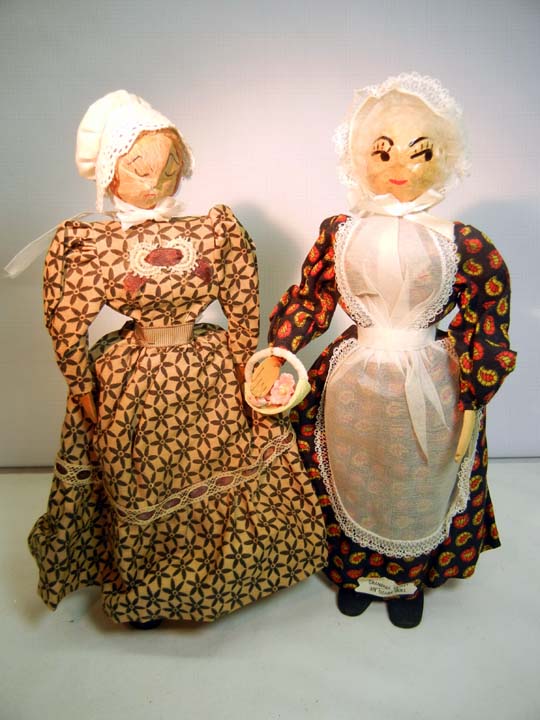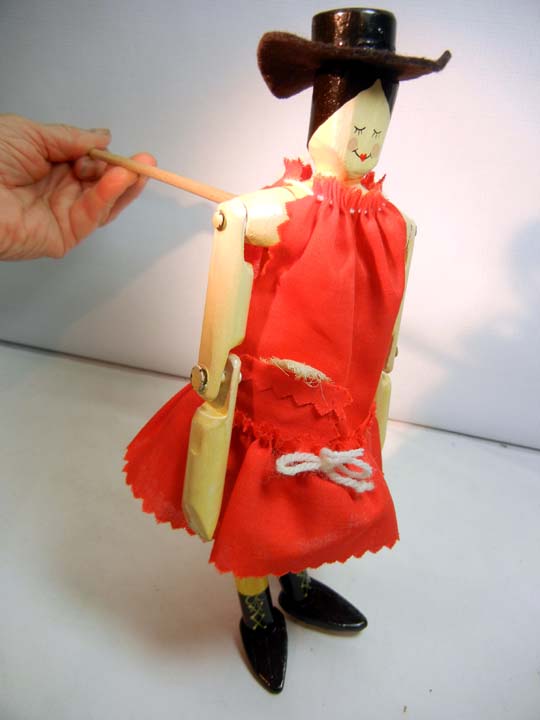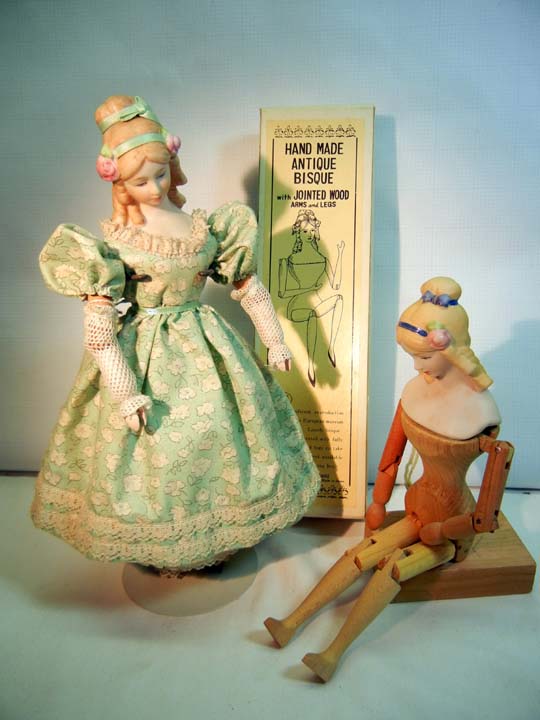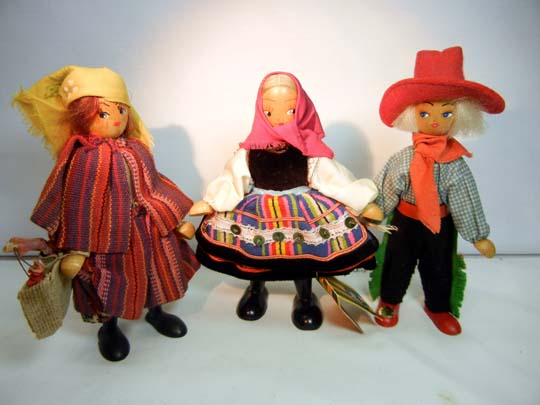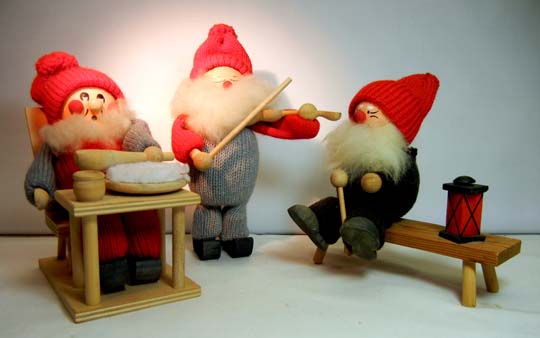 Could these three jolly 7 in. wood elves be Santa’s helpers on the day after Christmas? They are staying cozy in their knitted outfits after a job well done. A tag on their foot reads “Made in Sweden.”
Could these three jolly 7 in. wood elves be Santa’s helpers on the day after Christmas? They are staying cozy in their knitted outfits after a job well done. A tag on their foot reads “Made in Sweden.”
Walnut Head Dolls
Wooden Dancing Doll
Shackman Bisque And Jointed Wood Doll
1920s Blue Eyes Doll
I was unable to find anything about this 1920’s Blue Eyes – The Doll Bag found at a flea market in her original box. She has a 4 in. wooden painted head and upper body with arms strung through the shoulders. A 7 in. cotton bag is attached to the waist. It closes with pull cords at the bottom so one must carry it with the doll upside down. It is from Village Toy Works, Evanston, Illinois.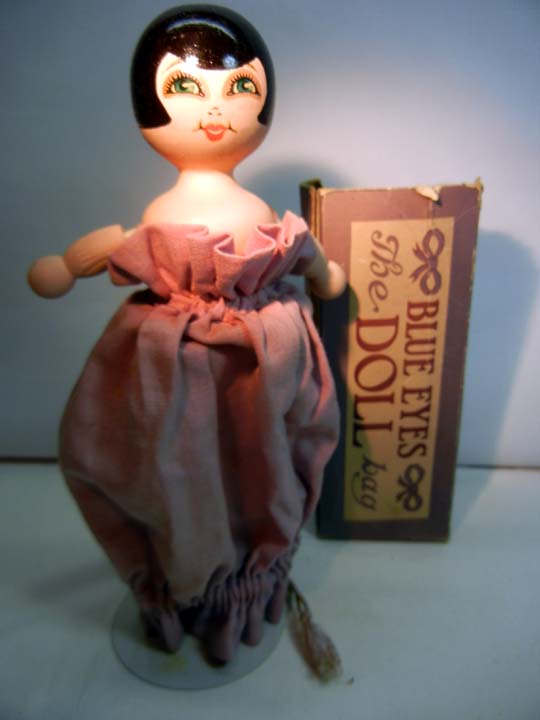
Polish Wooden Dolls
Carved Wooden Rabbit Doll
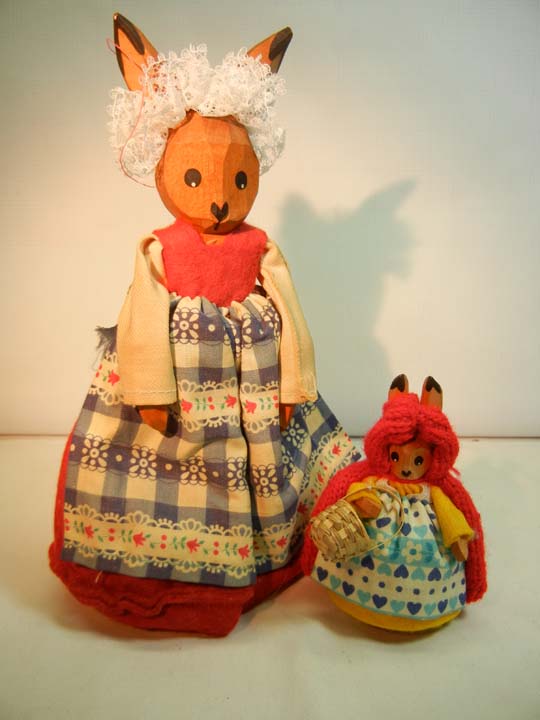 The 8.5 in. rabbit has a carved head and torso. Carved lower “arms” are attached with a wire through the torso. She is set on a stand with a dowel. Her felt skirt under the apron opens in the front and can be used as a container for candy, etc. She is marked, Made in W. Germ. The 3.5 in. rabbit is a miniature of the larger one. I gave her a red cape and a basket.
The 8.5 in. rabbit has a carved head and torso. Carved lower “arms” are attached with a wire through the torso. She is set on a stand with a dowel. Her felt skirt under the apron opens in the front and can be used as a container for candy, etc. She is marked, Made in W. Germ. The 3.5 in. rabbit is a miniature of the larger one. I gave her a red cape and a basket.
Lotte Sievers-Hahn Doll
 In the village of Brockel in the Hamburg region of Germany is the workshop of Lotte Sievers-Hahn, a wood carver. Originating in 1929, she designed dolls, animals, and nativity scenes that are still carved today by those she trained. Her style featured a minimum number of deft strokes and gouges, working from small lime wood blocks. This 5 in. unmarked 1960’s doll has darning cotton hair, peg-jointed legs, and arms suspended from leather strips. She is shown with my favorite kitty.
In the village of Brockel in the Hamburg region of Germany is the workshop of Lotte Sievers-Hahn, a wood carver. Originating in 1929, she designed dolls, animals, and nativity scenes that are still carved today by those she trained. Her style featured a minimum number of deft strokes and gouges, working from small lime wood blocks. This 5 in. unmarked 1960’s doll has darning cotton hair, peg-jointed legs, and arms suspended from leather strips. She is shown with my favorite kitty.
Western Clothes Pin Dolls
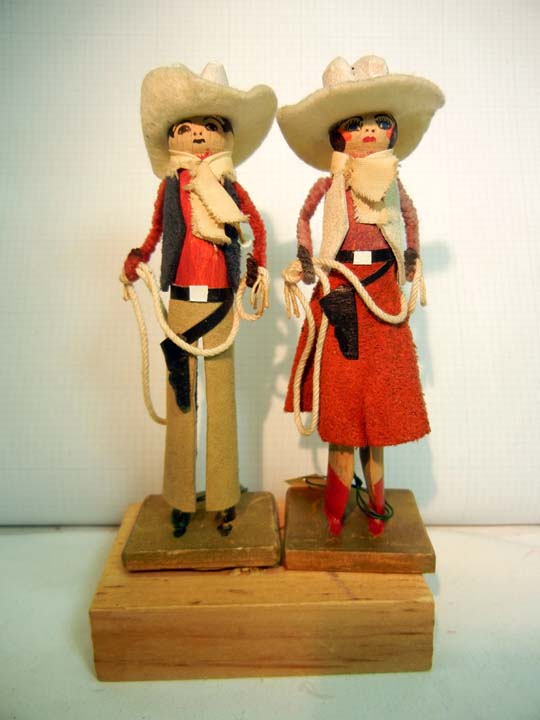 Clothespin dolls have been made from old fashioned wooden clothespins for a long time. Hand carved clothes pins first appeared in Europe in the late 1800’s. This Western Cowboy couple is very sophisticated. Their hats are actually notched extensions of the wooden pins, with felt brims superimposed to create the hat. They have stickers under their stands reading “Kimport Dolls, from the whole wide world, Independence, MO, No. 178.”
Clothespin dolls have been made from old fashioned wooden clothespins for a long time. Hand carved clothes pins first appeared in Europe in the late 1800’s. This Western Cowboy couple is very sophisticated. Their hats are actually notched extensions of the wooden pins, with felt brims superimposed to create the hat. They have stickers under their stands reading “Kimport Dolls, from the whole wide world, Independence, MO, No. 178.”
The Pinn Family
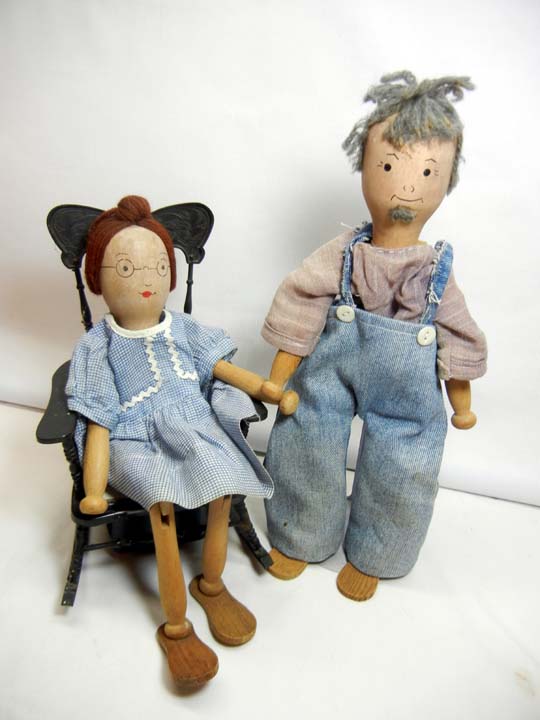
This 12 in. couple are the husband and wife of the Pinn Family, circa 1935. They were the last wooden dolls produced by the Schoenhut Doll Co., which began making dolls in 1912. Their original clothes were missing even though they were originally nailed to the body. There were four Pinns: Hattie, Ty, Bobby, and Baby.
